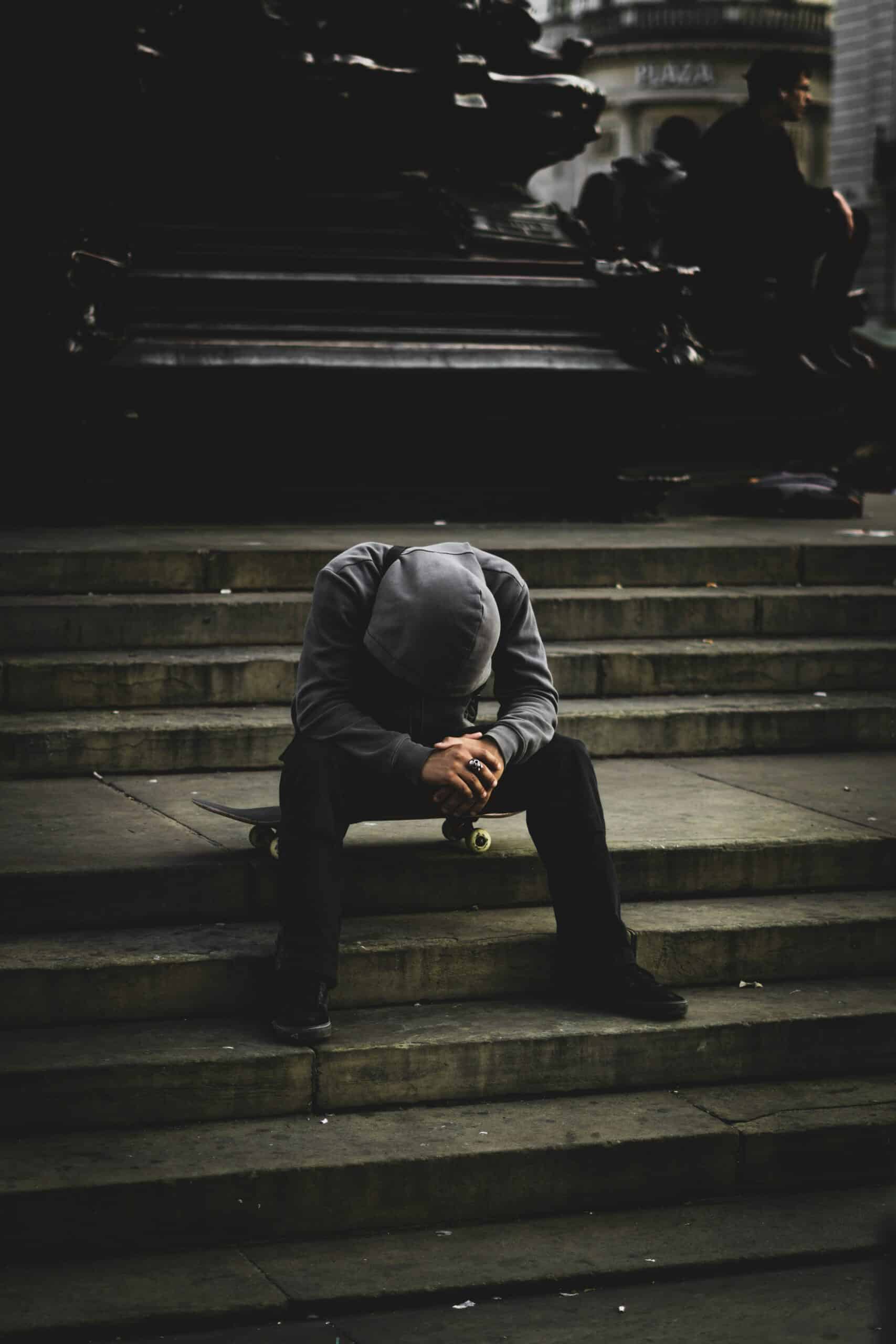Depression and Porn Addiction
Depression and porn addiction are often deeply connected, each fuelling the other in a painful cycle of shame and isolation. Whether depression leads to compulsive porn use, or addiction sparks low mood, both are treatable. With compassion, support, and connection, recovery is possible.

Porn addiction is often described as a hidden struggle, and for many people, it can feel shameful and isolating. One of the most significant challenges in understanding it is the close connection it often has with depression. These two issues frequently show up together, raising an important question – which came first? Did depression drive the compulsive behaviour or did the compulsive behaviour give rise to the depression? The reality is rarely simple. In many cases, the two conditions fuel each other, creating a cycle that can be extremely difficult to break without support.
When depression comes first
For some people, depression is the starting point. Low mood, loneliness, emptiness or a lack of motivation may leave them searching for ways to escape or numb the pain. Pornography, with its easy access and instant hit of dopamine, can seem like a convenient distraction. In the moment, it provides relief – something to look forward to, a way to fill the emptiness, a temporary sense of connection or stimulation.
But that relief is short-lived and afterwards, feelings of shame or self-criticism often take hold, and a person may feel guilty or disappointed in themselves. This can deepen the depression, creating a cycle where porn is used again and again to relieve those painful feelings, only for the guilt and shame to return. In other words, what started as a coping strategy becomes a trap.
When porn addiction leads to depression
For others, porn addiction may emerge first, gradually leading into depression. At the beginning, using porn may feel exciting, liberating and harmless. But as the behaviour escalates (often requiring more time, more secrecy and potentially more extreme content to get the same level of stimulation) – people start to notice the harm.
Relationships can become strained, intimacy with a partner may diminish and social or work life can be affected. The secrecy and isolation that often accompany addiction can leave someone feeling cut off and alone, even when surrounded by others. Over time, the loss of control, the impact on self-esteem and the inability to live in line with one’s values can contribute to feelings of hopelessness, helplessness and ultimately, depression. In this case, the addiction isn’t a symptom of depression, but the cause of it.
A cycle that feeds itself
The truth is that many people experience both at the same time – depression can fuel porn use and porn use can worsen depression. It becomes what you might call a “chicken and egg” scenario – impossible to separate, with each feeding into the other until both are deeply entrenched. For clinicians, this means treatment needs to address not only the compulsive behaviour but also the emotional state that drives and sustains it. And for clients, it means recognising that neither the depression nor the addiction is a personal failing. Both are symptoms of pain, unmet needs or unhealthy coping strategies, and both deserve compassion and care.
One of the most painful aspects of this cycle is shame. People struggling with porn addiction often describe feeling not just guilty about their behaviour but ashamed of themselves as a person. They may believe they are weak, flawed or unlovable. These beliefs intensify feelings of depression and can make it hard to reach out for help. Shame grows stronger when it’s hidden, but speaking openly about the struggle (whether in therapy, a support group or with a trusted friend) can help to ease the grip of shame and support healing. Long-lasting recovery starts with honesty and compassion, not judgment.
Understanding the brain’s role
Another important piece is understanding how the brain works in this cycle. Pornography stimulates powerful reward pathways in the brain, releasing neurochemicals that give a sense of pleasure and relief. For someone in the grips of depression, where everyday activities may feel flat or meaningless, this rush can be especially appealing.
But over time, the brain adapts, requiring more stimulation to achieve the same effect, while natural sources of pleasure such as spending time with friends, enjoying hobbies or experiencing intimacy, can feel increasingly dull. This leaves people more dependent on porn, while at the same time more detached from life, reinforcing both the addiction and the depression.
Breaking the cycle
Breaking free means addressing both the emotional and behavioural sides of the struggle. For depression, therapeutic approaches such as cognitive behavioural therapy, integrative counselling or medication can provide essential support. For porn addiction, it’s important to have strategies such as using accountability and recovery tools (like our Pivotal Recovery courses), exploring your underlying triggers and developing healthier coping mechanisms.
But perhaps most important of all is rebuilding connection – connection with oneself, with others and with a sense of meaning or purpose. Addiction thrives in isolation whereas recovery thrives in community. Many people find hope and strength through group therapy, peer support or connecting with others who understand what they are going through.
If you are someone struggling with both depression and porn addiction, it is important to know you are not alone. These struggles are more common than many realise, and they do not mean you are broken or beyond help. Both depression and addiction are treatable, and with the right support, it is possible to move towards a healthier, more fulfilling life.
UK support and helplines
If you are struggling right now, especially if you feel hopeless or unsafe, please reach out for support.
- Samaritans: Call 116 123 – available 24/7, free and confidential
- Mind: Call 0300 102 1234 or email info@mind.org.uk for mental health support
- NHS: Contact your GP for advice, support, or referral to talking therapies
